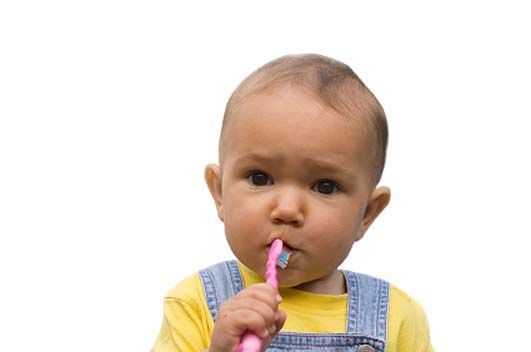Teething – it's a tough time for both you and your little one. Most babies will see their first tooth come through at around six months – but your baby might have his first whitecap any time between three and 12 months.
When that happens you will notice a tiny white speck or feel a sharp edge when you run your finger over his gums.
The arrival of the first tooth may well be a drawn-out process. Your baby might be in pain and drool for a couple of months before it breaks through. His gums can also become inflamed, causing red cheeks, and you may well notice him pulling at his ears (not to be confused with an ear infection, so if in doubt check with a doctor). Other classic signs of teething include chewing on toys and fingers, irritability and a slightly raised temperature. But teething shouldn't cause illness, so take your baby to the doctor if you are concerned.
Of course, for some babies, teething is a painless procedure – lucky ones will barely notice the arrival of that jagged white edge on their gums. But if little one is having a tough time teething, here as some ways you can help…* Make sure he has something to chew on. Chilled teething toys are especially good at relieving the pain of swollen gums* Rub your baby's gum with a clean finger or a little sugar-free teething gel* If your baby is over six months, try feeding him cold foods straight from the fridge such as yoghurts or puree* Try the correct dose of infant paracetamol or ibuprofen provided he is over three months. Always follow the correct dosage instructions on the packet, and consult your doctor or pharmacist if you are unsure.









